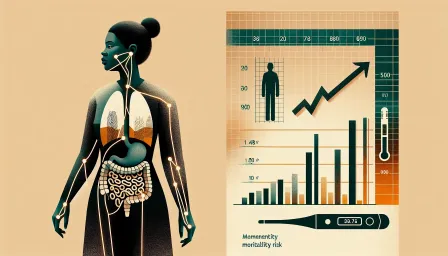Unlocking the Connection Between Metabolic Rate and Weight Loss: A Comprehensive Guide

Explore the intricate connection between metabolic rate and weight loss. Learn how metabolism affects your weight and discover effective strategies to boost weight loss.
Understanding the complex relationship between metabolic rate and weight loss is essential for anyone looking to shed unwanted pounds effectively. This comprehensive guide dives into the science behind metabolism, examines its effects on weight loss, and offers practical strategies to enhance your metabolic rate, ultimately facilitating better weight management.
What is Metabolism?
Metabolism encompasses all the chemical reactions in the body necessary for maintaining life. This includes converting food into energy, which powers everything from breathing to moving muscles. Metabolism is divided into two main categories:
- Catabolism: The process of breaking down food molecules to release energy.
- Anabolism: The synthesis of all compounds needed by the cells.
Understanding Metabolic Rate
The metabolic rate is the speed at which the body uses energy. This can be broken down into three main components:
Basal Metabolic Rate (BMR)
The BMR is the number of calories required to keep your body functioning at rest. This accounts for about 60-75% of the total energy expenditure.
Thermic Effect of Food (TEF)
TEF is the energy required for digestion, absorption, and processing of nutrients, making up about 10% of total energy expenditure.
Physical Activity
Physical activity includes all the movements and exercises that burn calories, contributing to the remaining 15-30% of energy expenditure.
The Link Between Metabolic Rate and Weight Loss
Weight loss occurs when the number of calories burned exceeds the calories consumed. While metabolic rate plays a significant role in this, it’s influenced by several factors:
Genetics
Genetics largely determine your BMR. Some individuals have a naturally higher metabolic rate, making it easier for them to lose weight, while others may struggle despite diet and exercise.
Age
As we age, our metabolic rate tends to slow down due to the loss of muscle mass and hormonal changes, making weight loss more challenging.
Muscle Mass
Muscle burns more calories than fat, even at rest. Hence, individuals with higher muscle mass have a higher BMR, making it easier to manage weight.
Gender
Men typically have a higher BMR than women due to a greater muscle mass and lower body fat percentage.
How to Boost Your Metabolic Rate
Boosting your metabolic rate can help you lose weight more effectively. Here are practical strategies to consider:
Increase Protein Intake
Consuming more protein can temporarily boost your metabolic rate by 15-30% due to the thermic effect of food. Additionally, protein helps build and maintain muscle mass.
Engage in Regular Exercise
Both aerobic exercises and strength training can increase your metabolic rate by burning calories and building muscle mass. High-Intensity Interval Training (HIIT) can be particularly effective.
Stay Hydrated
Drinking water has been shown to increase metabolic rate by 10-30% for about an hour. Staying hydrated ensures optimal cellular functions, which includes metabolism.
Get Enough Sleep
Lack of sleep can negatively impact metabolic rate and hormone regulation, leading to weight gain. Aim for 7-9 hours of quality sleep per night.
Eat Smaller, Frequent Meals
Eating smaller, frequent meals can keep your metabolic rate elevated throughout the day. Avoid skipping meals as it can slow down metabolism.
Common Myths About Metabolism and Weight Loss
There are several misconceptions about metabolism and its impact on weight loss. Here are some common myths debunked:
Myth 1: Starving Yourself Boosts Metabolism
Severely cutting calories can slow down your metabolism and lead to muscle loss. A balanced approach to dieting is crucial for sustained weight loss.
Myth 2: Metabolism is the Only Factor in Weight Loss
While important, metabolism is not the sole factor in weight loss. Diet, exercise, sleep, and stress management also play pivotal roles.
Myth 3: Metabolism is Fixed and Can’t Be Changed
While genetics play a role, you can influence your metabolic rate through diet, exercise, sleep, and lifestyle choices.
Conclusion
Understanding the connection between metabolic rate and weight loss is a crucial component of effective weight management. By recognizing the factors that influence metabolism and implementing strategies to boost it, you can enhance your ability to lose weight and maintain a healthy body. Remember, a comprehensive approach that includes a balanced diet, regular exercise, adequate hydration, and proper sleep significantly contributes to overall metabolic health.



























